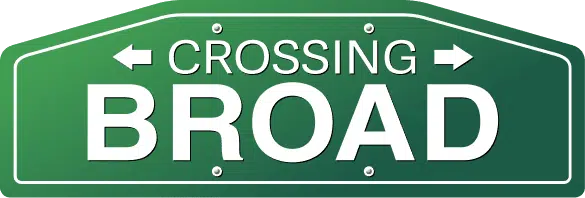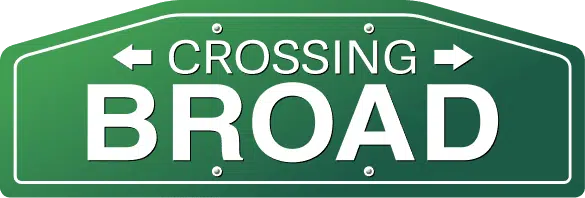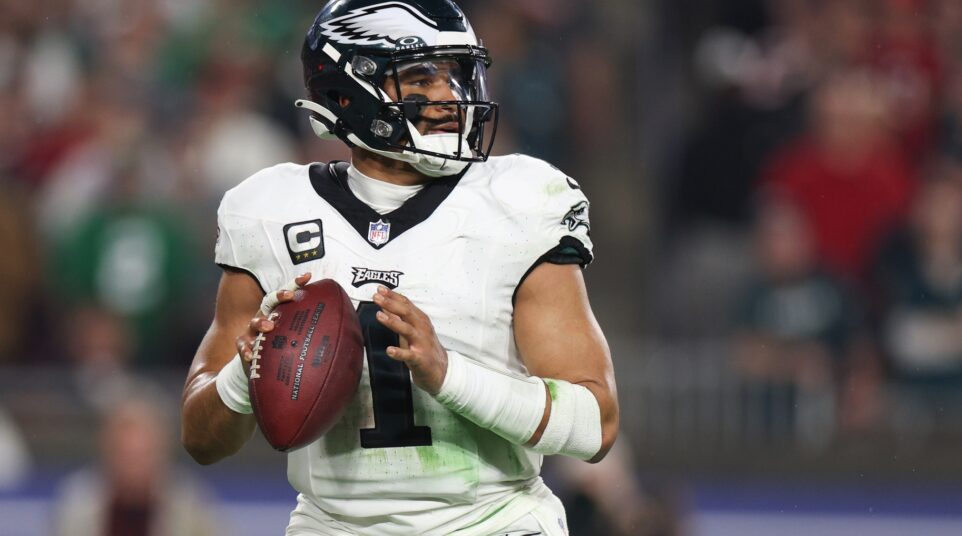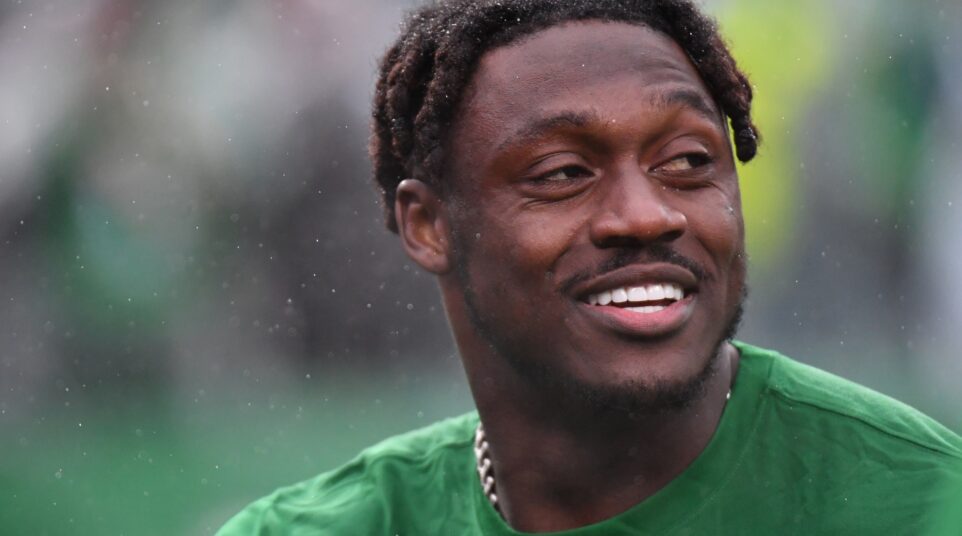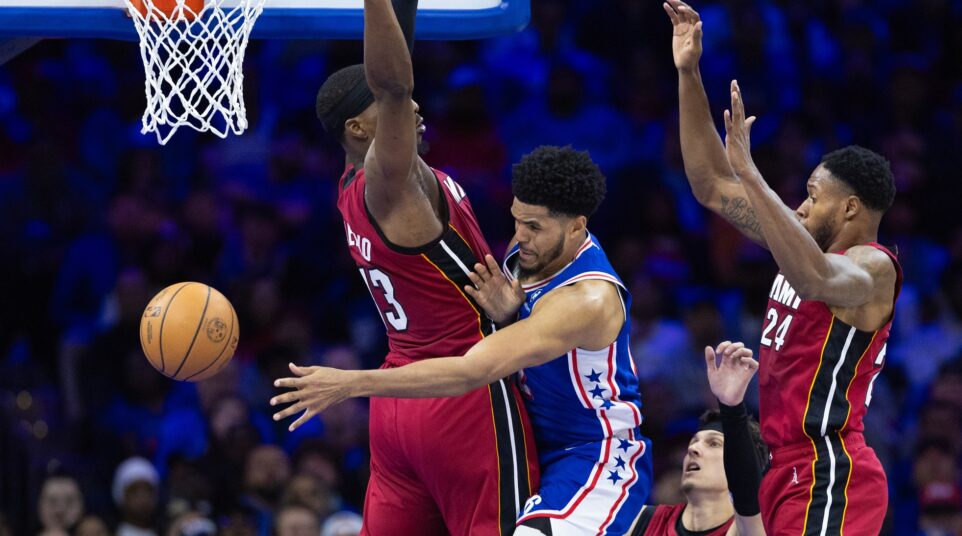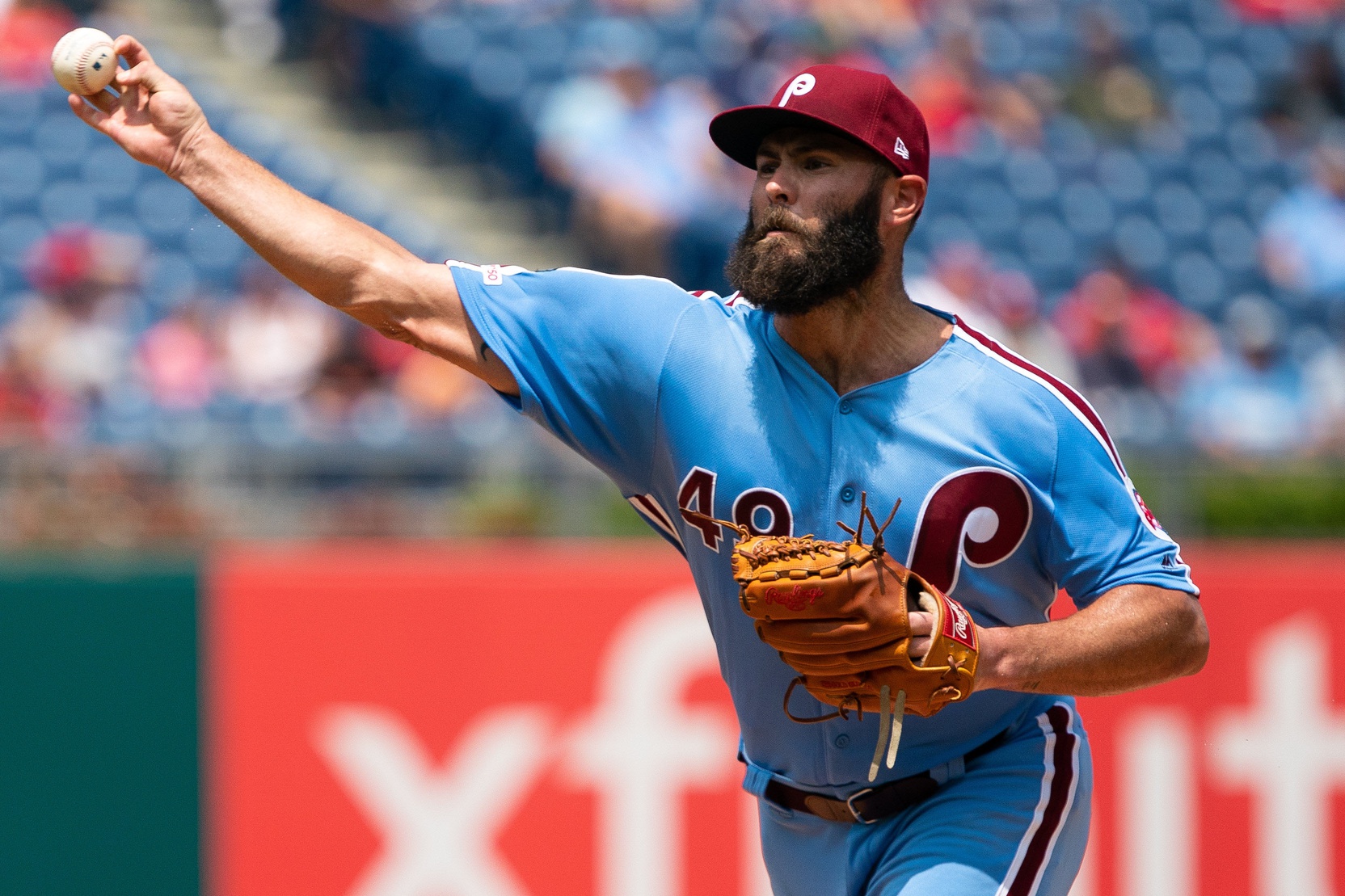
I Think I'm Buying What Jake Arrieta is Selling
There are two indisputable truths about spring training:
- Team broadcasters will joke about it being “chilly” in Florida on a 62 degree day. They will then chuckle and make a dig at viewers about the shitty weather up north.
- Both coaches and players will talk a lot about how some tweak or change is sure to produce improved results.
I’m sure there are others, but let’s just get to the point.
Plenty will be said by Phillies coaches and players over the next few weeks about the changes implemented by new manager Joe Girardi’s staff. Undoubtedly, some of these tweaks will produce better results, while some will ultimately prove to make little, if any, impact.
That said, I think the comments made by Jake Arrieta earlier today concerning the Phillies’ renewed focus (led by new pitching coach Bryan Price) on pitching down in the strike zone fall into the latter category. Here’s some of what he had to say, courtesy of this solid piece by NBC Sports Philadelphia’s Jim Salisbury:
As smart as a lot of these analytical teams are, they miss some of the most obvious signs of not needing to do that as often. Guys that don’t have mid- to upper-90s fastballs, guys that don’t have a 12-6 or an above-average curveball. Taking guys that throw sinkers and transitioning them to a guy that throws four-seamers up. It’s happened all around baseball and it’s foolish.
Under former manager Gabe Kapler, and more specifically, former pitching coach Chris Young, the Phillies placed an analytically-driven emphasis on pounding the top half of the strike zone with fastballs, even if doing so didn’t play to a pitcher’s strength.
While the approach worked on occasion, Phillies pitchers surrendered an absurd 258 homers a year ago. Juiced balls or not, that number represented the National League’s second highest total, behind only the Rockies’ 280 homers allowed.
Most notably, the team’s emphasis on pitching up in the zone had an adverse impact on the up-and-down performance of starter Zach Eflin.
Eflin had some early success and generated a measurable uptick in swinging strikes by attacking up, but following an abysmal five-start midseason stretch in which he was tattooed for 31 earned runs over 26.2 IP (10.46 ERA) while also allowing opponents to slug a ridiculous .715, he was demoted to the bullpen. The following is just one of many examples illustrating his problems during that stretch:
"We will not go quietly into the night!
We will not vanish without a fight!"#ChopOn | #IndependenceDay pic.twitter.com/lENKZQ6zgJ— AtBraves ⭐️⭐️⭐️⭐️⭐️⭐️⭐️⭐️ (@Braves) July 5, 2019
When Eflin returned to the rotation more than three weeks later, he did so with a back-to-basics approach that centered around utilizing his sinker down in the strike zone. That revised approach led to four quality starts over an eight-game stretch in August and September that saw him pitch to a respectable 3.20 ERA over 45 IP.
Arrieta summed up the team’s failed attempt to make Eflin into something he wasn’t:
Look, say you’re a center in the NBA and they want you to be a point guard. It’s probably not going to work out. It’s not who you are. ‘I can’t (bleeping) dribble, I can’t shoot three-pointers.’ It’s not going to work.
Some thoughts on these comments:
- Revealing remarks here that demonstrate the disconnect between Phillies pitchers and the philosophy of the former coaching staff. Arrieta complimented Young, saying he “did a lot of good,” which is nice of him, but did the players buy in? Did they truly believe in the plan? Confidence and conviction can go a long way, and it wouldn’t be the least bit surprising to see Eflin benefit from renewed confidence in a more traditional game plan.
- While there has been significant turnover and some added credibility at the field level for the Phillies this offseason, surely there exists several people in the team’s front office that share a belief with Kapler, Young, and others who champion the analytical benefits of working the upper-half of the zone. Not only do I wonder how those folks feel about Arrieta’s remarks, but his criticisms illustrate the challenge that Girardi and his coaching staff face as they try to maintain balance between the front office’s analytical approach and the players’ need for more traditional and structured methods. How well he meshes the two together will go a long way in determining the success of his tenure.
- I’m 500+ words into this thing without a strong take, and I feel like I need to deliver one to wrap this thing up.
My man Jack Fritz had a good one earlier:
Might start doing a Phillies take a day until Opening Day because I need it.
My first take:
Bryce hits over 40 HR's and finishes in the top 3 in NL MVP voting.
— Jack Fritz (@JackFritzWIP) February 18, 2020
Spicy.
Here’s another one–Jake Arrieta is going to give the Phillies a good season. Something like 25+ starts and a sub 3.50 ERA. I’ll even take it a step further and say that he pitches for the Phillies next season. Not bad for a guy who most fans probably would’ve preferred to part ways with following a season in which he pitched injured, struggled, and was shut down early–all for the low, low price of $25 million.
But I’m in on Arrieta in 2020.
Forget his improved health, or Price’s potential impact. Frankly, Arrieta kind of struck me as a guy who was a bit reluctant to pick up what the Phillies’ coaching staff was putting down over the past two seasons. That isn’t exactly a huge leap to make in light of his recent comments, so I’m not sure how much his personal approach will change. Rather, my confidence is rooted in these comments. Hit that story. Read what he had to say. Sounds like the no-bullshit, ultra-confident, ultra-aggressive pitcher the Phillies hoped they were getting when they signed him two years ago.
Maybe this prediction isn’t exactly an indisputable truth, but it beats talking about the weather.
